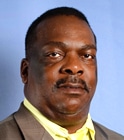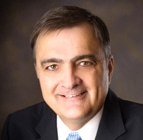BOSTON – Led by Boston Mayor Martin J. Walsh, New York City Mayor Bill de Blasio, U.S. Conference of Mayors (USCM) Vice President Baltimore Mayor Stephanie Rawlings-Blake and Seattle Mayor Ed Murray, mayors pledged March 23 to work together to urge Congress to move past partisanship, including through local action and lobbying Washington, at a press conference during a meeting of The U.S. Conference of Mayors Cities of Opportunity Task Force.
Specifically, the mayors are calling for increased resources to the program, with more locally-directed funding to address the growing needs in cities where populations are steadily rising.
More than twenty mayors from cities large and small convened in Boston for the second meeting of the conference task force, hosted by Boston Mayor Martin J. Walsh, who serves as Vice Chair alongside New York City Mayor Bill de Blasio who serves as chair to discuss municipal best practices in the areas of transportation and housing, and ways that federal policy can help close the wage gap and lift individuals and families out of poverty by providing reliable transportation options, access to affordable housing and expanded employment opportunities.
The mayors also heard from U.S. Department of Transportation Deputy Secretary Victor Mendez who discussed reauthorization of the surface transportation bill, as well as Massachusetts Sen. Elizabeth Warren on income inequality.
“Inequality is a national crisis. It’s holding down wages, it’s holding back our economy, it’s undermining the American Dream,” said Mayor Walsh. “Here in Boston we are innovating, and growing opportunity to lift individuals and families out of poverty. But we need our partners in the Commonwealth, and in the federal government to act and make the critical funding and policy decisions that invest in and strengthen municipalities, the building blocks of this nation.”
“Mayors are on the frontlines of combating inequality – and we know firsthand that transportation is central to that fight as the backbone of economic growth,” said Mayor de Blasio. “Transit serves as a lifeline for so many, connecting those who need it most to jobs, school, and real mobility, while transportation infrastructure creates the good-paying jobs so many need. The status quo is simply unacceptable. It’s time for Congress to truly invest in the future of our cities and our nation by passing a bill that increases federal transportation funding. And we’ll be making that clear with direct action in our cities and in Washington.”
“Mayors know that transportation systems and services can be an effective tool to address inequality and understand how locally-directed transportation solutions can create more economic opportunity and better serve our nation’s working poor,” said Conference Vice President Mayor Rawlings-Blake. “As we look to Congress, we renew our call for stronger federal resource commitments, with more emphasis on locally-directed funding, to improve our transit and street systems to better serve our growing metropolitan areas and confront income inequality. We cannot let the federal government off the hook in supporting us in meeting these critical challenges.”
Mayor Murray said, “Over the last two days, we’ve heard from Mayors across the country about how our cities are laboratories for innovation, making a difference in people’s lives. In Seattle, we’ve led the way on raising the minimum wage, expanding local transit and access to pre-k. While cities are acting now, we can’t do it alone. It’s time for a national urban agenda, one that will repair our country’s aging transportation infrastructure, expand access to affordable housing and address income inequality. We must have a re-energized federal government that is acting as an equal partner to support the great work happening at the local level.”
Established at the Conference’s Annual Meeting last June by Conference President Sacramento Mayor Kevin Johnson, this Task Force aims to bring mayors from across the country together to leverage the power of local governments to advance a national common equity agenda with policies and best-practices that will help expand opportunity for all. The inaugural meeting of the group was held in New York City in August 2014 to examine issues around improving early childhood education, expanding broadband access and addressing income inequality.
During that first meeting, The Conference released a report that documents the gradual, but dramatic shift over the past 40 years of income distribution in the U.S. in favor of upper-income households as recent reports have also shown. Overall, the USCM report projected a further drift toward inequality in the coming years, making income inequality a structural feature of the 21st century economy unless specific policy measures are taken to address the growing wage gap.
Commenting on the ongoing work of the Conference’s Task Force, USCM CEO and Executive Director Tom Cochran said, “The nation’s mayors cannot stand idly by when Washington does not act. We have an obligation to do what we can from where we sit to address issues of inequality and grow economic opportunities for the people living in cities and their metropolitan areas all across the country.”

 Los Angeles firefighters say nearly two dozen people suffered injuries, mostly minor, when a commuter train struck a car near downtown Los Angeles and partially derailed.
Los Angeles firefighters say nearly two dozen people suffered injuries, mostly minor, when a commuter train struck a car near downtown Los Angeles and partially derailed. WASHINGTON – U.S. Senators Maria Cantwell (D-Wash.), Patty Murray (D-Wash.), Tammy Baldwin (D-Wis.), and Dianne Feinstein (D-Calif.) introduced legislation March 25 that would set strong new safety standards for trains hauling volatile crude oil, to better protect American communities along the tracks.
WASHINGTON – U.S. Senators Maria Cantwell (D-Wash.), Patty Murray (D-Wash.), Tammy Baldwin (D-Wis.), and Dianne Feinstein (D-Calif.) introduced legislation March 25 that would set strong new safety standards for trains hauling volatile crude oil, to better protect American communities along the tracks.

 WASHINGTON – U.S. Senators Richard Blumenthal (D-Conn.) and Cory A. Booker (D-N.J) with U.S. Representatives James P. McGovern (D-Mass.) and Jerrold Nadler (D-N.Y.) March 26 wrote to U.S. Department of Transportation (DOT) Secretary Anthony Foxx, urging him to review results of a 2012 DOT study on the impact of heavy commercial trucks on the nation’s roads and highways prior to publicly releasing the study results, noting their concerns with the study’s methodology and data.
WASHINGTON – U.S. Senators Richard Blumenthal (D-Conn.) and Cory A. Booker (D-N.J) with U.S. Representatives James P. McGovern (D-Mass.) and Jerrold Nadler (D-N.Y.) March 26 wrote to U.S. Department of Transportation (DOT) Secretary Anthony Foxx, urging him to review results of a 2012 DOT study on the impact of heavy commercial trucks on the nation’s roads and highways prior to publicly releasing the study results, noting their concerns with the study’s methodology and data. Members of the Senate Commerce Committee yesterday voted to approve the markup of a bill that would extend the deadline for affected rail companies to implement positive-train-control (PTC) technology until Dec. 31, 2020, instead of the current deadline that would require implementation by the end of this year.
Members of the Senate Commerce Committee yesterday voted to approve the markup of a bill that would extend the deadline for affected rail companies to implement positive-train-control (PTC) technology until Dec. 31, 2020, instead of the current deadline that would require implementation by the end of this year.